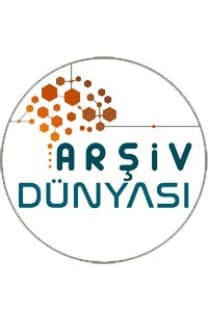Arşivlerde Kullanıcı Beklentilerine Yönelik Çalışmaların Önemi
Sayısal evrimi ve bilgi çağını yaşadığımız dünyamızda, toplumun iletişim yollarından bilgi kullanımına kadar birçok şey değişmektedir. Araştırmacılar, arama davranışları ve araştırma araçları yanı sıra arşivsel dokümantasyonda aranan bilgi türlerinde de değişim yaşanmaktadır. Arşivsel bilgiden azami yararlanılmasını amaçlayan arşivlerin bu değişimlerin gerisinde kalmaları, toplumun, diğer bilgi kaynaklarından elde edemeyeceği bilgiden yoksun bırakılması anlamına gelir. Ayrıca bilgi pazarındaki haklı yeri koruyabilmeleri için arşivlerin bu değişimlere hazırlıklı olmaları gerekir. Bu nedenle de kayıtları (analog ve sayısal) koruma ve içerdikleri kültürel ve bilimsel bilgiye erişimi çağın getirdiği beklentiler doğrultusunda sürdürebilme sorumluluğu taşıyan arşivcilerin, değişen koşulları izlemeleri ve onlara uyum sağlamaları hayati önem arz etmektedir. Arşivlerin bilgi ortamının vazgeçilmez bir parçası olma niteliğinin sürekli olarak geliştirilmesi gerekliliğinden yola çıkan bu yazıda, arşivlerin günümüz değişimlerine uyum sağlamasında kullanıcı çalışmalarının rolü açıklanmaya çalışılmış ve kullanıcı beklentilerini aksettiren çalışmaların, müşteri hizmetleri programlarında süre giden bir görev olarak yerini alması gerektiği sonucuna varılmıştır.
Importance of User Expectations Oriented Studies in Archives
In our contemporary world witnessing digital evolution and information age, from societies’ communication ways to use of information, many things are changing. Changes are being experienced in researchers, information seeking behaviors and finding aids, along with the information types searched in archival documentation.When archives, aiming to maximize the use of archived information, lag behind this change, the society will be deprived of the information that cannot be obtained from other sources. Furthermore, in order to maintain their deserved position in the information market, archives should be prepared for such changes. Therefore, it is of vital importance that the archivists, who are responsible for preserving the records (both digital and analogue) and sustaining the access to the cultural and scientific information in these records in line with the expectations brought by the age, follow the changing environment and adapt to these changes. Setting out from the necessity of continuous development in the archives as an essential component of the information media, in this paper the role of user oriented studies in the adaptation of the archives to the contemporary changes has been tried to be explained and it has been concluded that the studies reflecting user expectations should become an ongoing duty of the customer services programs.
Keywords:
Use, user archival research,
___
- Ataman, Bekir Kemal. “Requirements for Information Professionals in a Digital Environment: Some Thoughts”, Program: Electronic Library and Information Systems, 43(2009), s. 215 – 228.
- Conway, Paul. “Facts and Frameworks: An Approach to Studying the Users of Archives”, American Archivist, 49, Fall 1986, s. 393–407.
- Cox, Richard J. “Access in the Digital Information Age and the Archival Mission: The United States.”, Journal of the Society of Archivists, 19(1), 1998, s. 25-40.
- Dearstyne, Bruce W. Arşivsel Girişim: Modern Arşivcilik İlkeleri, Uygulamaları ve Yönetim Teknikleri (trc. Mustafa Akbulut ve A. Oğuz İcimsoy), İstanbul 2001.
- Dearstyne, Bruce W. “What is the Use of Archives? A Challenge for the Profession”, American Archivists, 50(1987), s. 76-87.
- Dowler, Lawrence. “The Role of Use in Defining Archival Practice and Principles: A Research Agenda for the Availability and Use of Records”, American Archivist, 51, Winter and Spring 1988, s. 74-86.
- Hill, Amanda. “Serving the Invisible Researcher: Meeting the Needs of Online Users”, Journal of the Society of Archivists, 25(2), 2004, s. 139-148.
- International Symposium of “Management of Cultural Heritage in Digital World and InterPARES 3 Project”, 10–11 May 2012, İstanbul.
- Jimerson, Randall C. “Redefining ArchivalIdentity: Meeting User Needs in the Information Society”, American Archivist, 52, Summer 1989, s.332-340.
- Körmendy, Lajos. “Arşivlerin Felsefe ve İşlevlerindeki Son Değişiklikler” (trc. Nihal Somer), Tülin Aren Armağanı, İstanbul 2009, s. 165-175.
- Levitt, Theodore. “Marketing Myopia”, Harvard Business Review, September-October 1975, reprint 75507, s. 1-14.
- Maher, Willam J. “Use of User Studies”, The Midwestern Archivist, XI (1), 1986, s. 15-26.
- Pearce-Moses, Richard. A Glossary of Archival and Records Terminology, The Society of American Archivists, Chicago 2005, 2 Aralık 2011 tarihinde http://www2.archivists.org/glossary/terms/u/user adresinden erişildi.
- Snow, Kellie ve diğerleri. “Considering the User Perspective: Research into Usage and Communication of Digital Information”, D-Lib Magazine, 14 (5/6), May/June 2008, 2 Aralık 2011 tarihinde http://www.dlib.org/dlib/may08/ross/05ross.html adresinden erişildi.
- Şentürk, Burçak. “Kullanıcı Odaklı Arşiv Hizmetlerinin Temel Unsurları – Erişim”, Bilgi Dünyası, 12(2), 2011, s. 319–333.
- Yakel, Elizabeth. Torres, Deborah A. “AI: Archival Intelligence and User Expertise”, American Archivist, 66, Spring /Summer 2003, s. 51-78.
- ISSN: 2147-2599
- Yayın Aralığı: Yılda 2 Sayı
- Başlangıç: 1999
- Yayıncı: Türk Arşivciler Derneği
Sayıdaki Diğer Makaleler
Arşivlerde Kullanıcı Beklentilerine Yönelik Çalışmaların Önemi
Kelâmî-i Rûmî, Vekāyi‘-i Ali Paşa [Yavuz Ali Paşa’nın Mısır Valiliği (1601–1603)]
Dünden Bugüne Kalite Anlayışı Hakkında Bazı Tespit Ve Düşünceler
Arşi̇v Bi̇li̇nci̇ni̇n Topluma Yansıması
Türk Devlet Geleneğinde Bürokrasi ve Memur
Yeni Belgeler Işığında Harf Devriminin Hazırlık Çalışmalarına Bakış
Bi̇r Mi̇syoner Gazetesi̇ni̇n Osmanlı Ülkesi̇ndeki̇ Serüveni̇
Arşiv Kanunlarının Karakteristik Yapısı Üzerine Bir Değerlendirme
